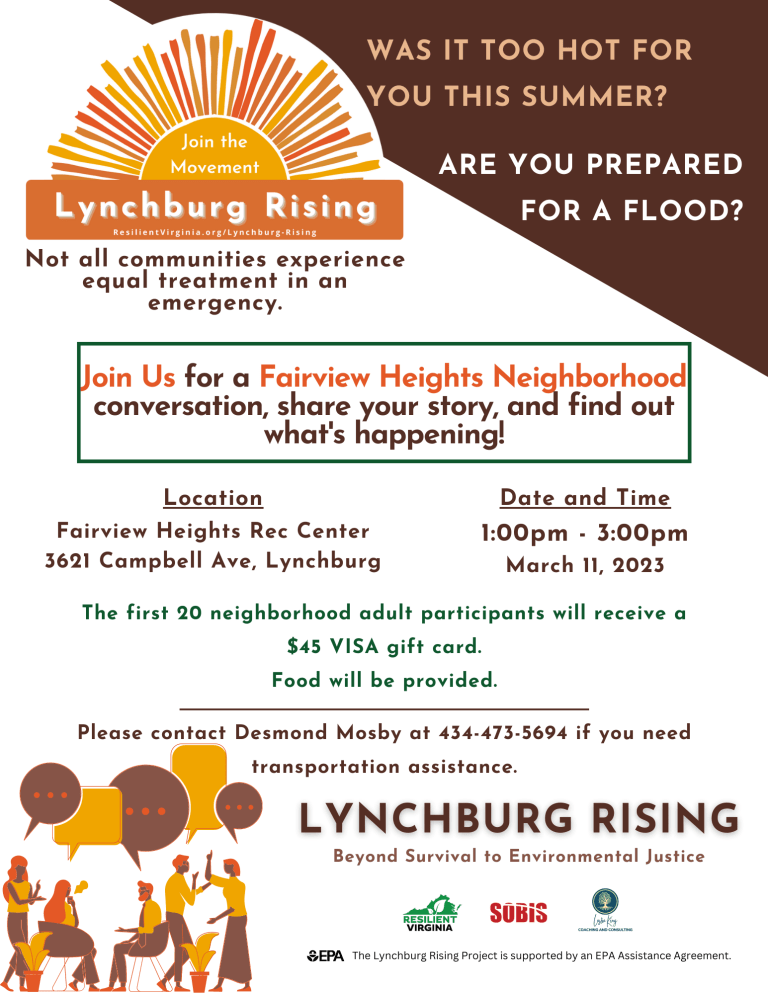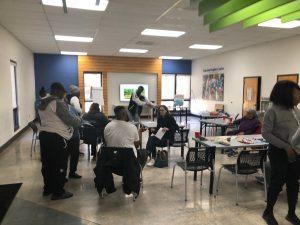
Environmental Justice, Neighborhood Strengths & Assets
What does environmental justice mean to you?
- Not a difference of response time or allocation of resources.
- Treat all neighborhoods equally.
- Response time should be the same.
- Listening to what the neighborhood wants.
Neighborhood Strengths and Assets
- Virginia University of Lynchburg
- Less crime
- Desmond T. Doss History
- Churches
- Otabenga History
- Stores are accessible – grocery store other stores
- Convenient stores, drug store
- Younger Park
- Fairview Heights Center
- People look out for each other – good neighbors
- Lawyer offices and other business – Community Bank
- Jubilee Neighborhood Center – Sterling Wilder
- South Lynchburg Church
Exploring the Issues: Heat, Flooding, Hazardous Materials & Other
Heat
- Increase of heat on Otey Street
- Lots of trees and greenery
- Reduction of trees on Ridge Avenue and Florida Avenue near the Food Lion
- Community Garden not in use
Flooding
- Tazewell near South Lynchburg
- Traffic runs into Fisher Creek
- City blames flooding on the yard when called
Hazardous Material & Other
- Norfolk Southern
- Concerned that Candler’s Oil and Starling Fuel might have hazardous material
Opportunities for Change
Individual
- Go to City Council meetings
- Go to neighbors to bring others together
- Sign Petition
- Host more sessions like this
- Vote
- Educate myself
Do With Others
- Fairview Heights recognition
- Hold institutions accountable to put up or shut up
- Institutions and the local government do
- Host community meetings
- Follow through
- See the neighborhood environment
- Mosby & Campbell Church
- Apply for grants – programs for the center





